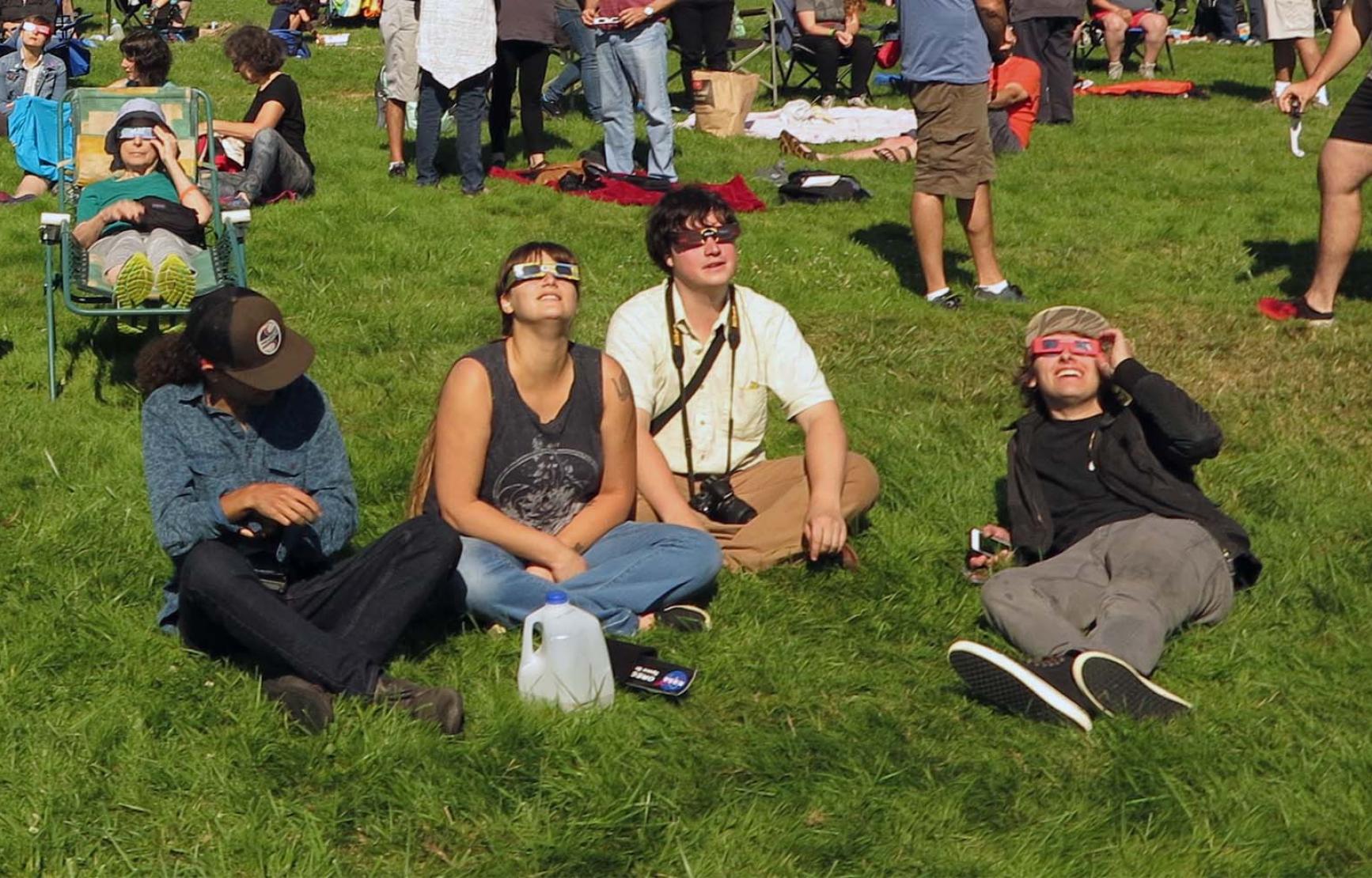2024-11-18 Colloquium Driving Electronics with Micro Defects and Femto Spin Flips Colloquium
2024-11-04 Colloquium Tidal Disruption Events (TDEs): Progress, Open Questions, and Prospects Colloquium
2024-10-28 Colloquium DNA-Assembled Dye Aggregates as Possible Materials for Quantum Information Science Colloquium
2024-10-21 Colloquium New Direct Electron Imaging Techniques for Quantum Materials Colloquium
2024-10-14 Colloquium Uncovering extreme matter when gravity waves Colloquium
2024-10-07 Colloquium The self-force on static and dynamic charges in Schwarzschild spacetime using the method of images Colloquium
2024-09-30 Colloquium Welcome back! A short Department prospectus for the upcoming year. Colloquium
2024-05-20 Colloquium Yunker Lecture: Facilitating thinking and learning in and beyond the physics classrooms using research-based approaches Colloquium
2024-05-13 Colloquium Sharing Our Science: Challenges and Opportunities in Communicating STEM Colloquium
2024-05-06 Colloquium Binary evolution: a multi-messenger, multi-band puzzle Colloquium
2024-04-29 Colloquium EVENT POSTPONED: New Direct Electron Imaging Techniques for Quantum Materials Colloquium
2024-04-22 Colloquium STEP UP: Supporting Teachers to Encourage the Pursuit of Undergraduate Physics for Women Colloquium
2024-04-15 Colloquium Chemical Bonding? Playing catch with electrons! Colloquium
2024-04-08 Colloquium Real-Space Superconductivity Colloquium
2024-03-20 Colloquium Probing Cosmic Structure Evolution with Galaxy Clusters Colloquium
2024-03-18 Colloquium Nucleosynthesis and Transients from Cataclysmic Astrophysical Events Colloquium
2024-03-13 Colloquium Investigating the gravitational-wave background from nHz to kHz Colloquium
2024-03-11 Colloquium Cosmic Song and Dance: Probing Supermassive Black Hole Binaries with Electromagnetic and Gravitational-wave Observations Colloquium
2024-03-08 Colloquium Numerical Relativity in the Era of High-Sensitivity Gravitational-Wave Observation Colloquium
2024-03-06 Colloquium Exploring the Origins of Supermassive Black Holes and their Cosmic Significance through Cosmological Simulations Colloquium
2024-03-04 Colloquium Looking for Secrets in the Nonlinear Universe Colloquium
2024-02-05 Colloquium Attosecond Science: Understanding the Physics behind the 2023 Nobel Prize Colloquium
2024-01-29 Colloquium Planning for learner variation in physics: leveraging education research and curriculum design Colloquium
2024-01-22 Colloquium What Kind of a Beast Is It? The exceptional Lie Algebra e8 and the Standard Model of Particle Physics Colloquium
2023-11-27 Colloquium Neutron stars: a window into dense nuclear matter Colloquium
2023-11-13 Colloquium Improving Student Learning: The Dual Roles of Conceptual Understanding and Reasoning Ability Colloquium
2023-11-06 Colloquium Making sense of quantum mechanics with the languages of physics Colloquium
2023-10-30 Colloquium The 3D (Discovering, Decoding, and Directing) State Space of Cells Colloquium
2023-10-23 Colloquium How quantum mechanics can help cosmologists solve their problems Colloquium
2023-10-16 Colloquium Using Photons to Understand and Change Defects in Semiconductors Colloquium
2023-10-02 Colloquium Welcome to the Department of Physics Colloquium
2023-05-22 Colloquium Mesoscale scanning probes for studying interacting electrons in two-dimensional materials Colloquium
2023-05-15 Colloquium Combining modeling and experiment to understand cell migration Colloquium
2023-05-08 Colloquium “Quantum alchemy” with two-dimensional materials Colloquium
2023-05-01 Colloquium Simulating excited-state processes in mesoscale molecular aggregates Colloquium
2023-04-10 Colloquium Hans Geiger and the Birth of Modern Physics Colloquium
2023-04-03 Colloquium "Disruptive" vs. state-of-the-art solar photovoltaic technologies? Colloquium
2023-03-22 Colloquium Nobel Prize in Physics 2022: Entangled States – From Theory to Technology Colloquium
2023-03-06 Colloquium Physics Colloquium Colloquium
2023-02-27 Colloquium Metastable qubits and motional state interferometers in trapped-ion systems Colloquium
2023-02-20 Colloquium Imaginary Mechanics from Spring Networks to Polymers Colloquium
2023-01-23 Colloquium Nobel Prize in Physics 2022 Colloquium
2022-11-28 Colloquium How Random Are Quantum Random Numbers? Colloquium
2022-11-21 Colloquium From a Grain of Sand to a (Quantum) Bit of Information Colloquium
2022-11-14 Colloquium Presentation: Developing and Utilizing Computational Physics Approaches to Study Biology Problems Colloquium
2022-11-14 Colloquium Developing and utilizing computational physics approaches to study biology problems Colloquium
2022-11-02 Colloquium TBA (event to be confirmed) Colloquium
2022-11-02 Colloquium The Heavyweight W boson - an Upset to the Standard Model of Particle Physics Colloquium
2022-10-24 Colloquium Pursuing quantum spin liquids in the van der Waals material a-RuCl3 Colloquium
2022-10-17 Colloquium What Is a Single Molecule, and What Can You Do With It? Colloquium

